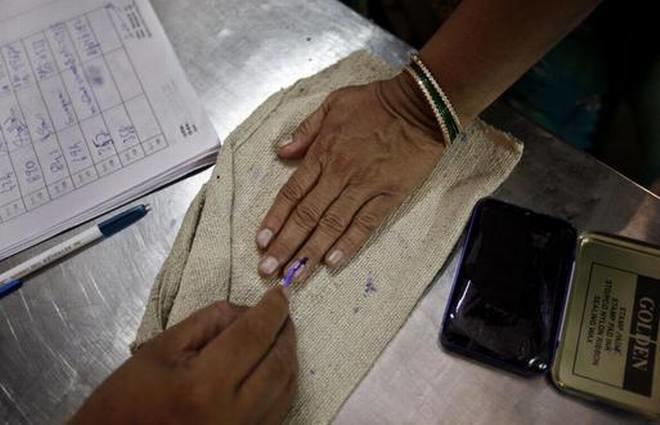Law Commission in Favour of Simultaneous Elections

The Law Commission of India published its Draft Report on Simultaneous Elections on August 31. Apart from wholeheartedly supporting the idea that Lok Sabha and state assembly elections should be held simultaneously, the Commission has also recommended making the provisions concerning no-confidence motions more difficult among other similar proposals.
Also Read: ‘One Nation, One Election’: Holding Elections Simultaneously not Feasible at All
The Commission is of the opinion that holding simultaneous elections will save public money, help reduce the burden on the administrative setup and the security forces; and ensure that governance trumps electioneering.
The Commission recognised that in order to be able to conduct simultaneous elections, the current lives of legislative assemblies would have to be either extended or reduced. Barring Jammu and Kashmir – which has an assembly life of six years – the Commission recommended bringing about the necessary modifications by amending Article 172 of the Constitution which deals with the terms of assemblies. To this effect, the Commission also proposed three options for bringing about the changes.
The first option suggested by the Commission is to synchronise 12 state assembly elections (including one Union Territory) with the Lok Sabha elections in 2019. This will be easier since five states are already synchronised – Andhra Pradesh, Arunachal Pradesh, Odisha, Sikkim and Telangana. The assembly elections for Haryana, Jharkhand, Maharashtra and the National Capital Territory of Delhi can take place at the same time. Provided that these assemblies agree to be dissolved before their terms end. For Chhattisgarh, Madhya Pradesh, Mizoram and Rajasthan, their assembly terms will have to be extended to a maximum of six months for them to be synchronised. For the remaining 16 states, their assembly elections should be held in 2021 which would correspond to roughly halfway in the five-year term starting in 2019. Following this election, the assemblies will hold a term for thirty months or till 2024, whichever is earlier.
The second option proposed by the Commission is to synchronise the first mentioned 12 states with the Lok Sabha elections, while synchronising the remaining 16 states such that elections are held twice in five years. The third option is that all the elections that are to be held in a given year should be held at the same time. The Commission rejected the argument that the federal structure of the Constitution would be adversely impacted due to amending Article 172. Instead, they went further to state that ratification by the states will not be necessary to bring about the changes.
Following these options, the Commission also made recommendations regarding the general functioning of India's polity.
Regarding no-confidence motions, the Commission recommended that the concept of 'constructive no confidence' be adopted. This concept is present in the 1949 German Constitution, and its tenet is that if a no-confidence motion is to be tabled, a replacement must also be proposed. In the case of Germany, both the no-confidence motion as well as the replacement require consensus. The other change to no-confidence motions recommended by the Commission is that the number and frequency of such motions should also be restricted. In the main discussion around no-confidence motions, the Commission suggested that the motions cannot be moved until the expiry of two years from the government's formation. They also suggested a one-year cooling period before another can be moved once it is defeated.
In the case of a hung parliament or hung assembly where there is no party that enjoys a sizeable majority, first the single largest party or coalition be called. If this fails, the president or the governor should call for an all-party meet to determine the course of action. If after these two attempts fail, mid-term polls should be held. The Commission also recommended that consensus should be sought during the budget session to avoid budgetary defeat. If this fails, mid-term polls should be held. However, following the mid-term polls, the newly constituted house will serve a term only for the remainder of the regular term. The Commission has recommended the adoption of remainder of the term so that elections can continue to be in synch.
The other recommendations of the Commission on ancillary issues concern disqualification for defection and bypolls. Regarding disqualification for defection, the Commission recommended that such matters should be decided within six months of the issue arising, by the speaker or chairperson of the house. On the issue of by-elections, the Commission recommended that all by-elections should be held at the same time.
Though the Law Commission has unequivocally supported holding simultaneous elections, the Commission has also stressed on the need for consensus across state and party lines. The Commission rejected the proposal that doing so would disadvantage state or regional parties on the ground that these smaller parties only have to contest the assembly and Lok Sabha elections for their state. Thus, they can localise the issues better than the national parties, who are tasked with building a narrative which works at both levels. However, this view may not be appropriate as national parties tend to have deeper pockets than their state or regional counterparts. This becomes more apparent when one considers the liberal use of 'unrecorded' election expenditure. Whether the government will push for holding simultaneous elections or not is something one cannot determine. However, it is clear that the Law Commission has in essence recommended exactly what the government wants.
Get the latest reports & analysis with people's perspective on Protests, movements & deep analytical videos, discussions of the current affairs in your Telegram app. Subscribe to NewsClick's Telegram channel & get Real-Time updates on stories, as they get published on our website.
























